Peter Costello: We’ve abandoned struggle for a budget surplus
Big government, permanent debt will drag us down, the former treasurer warns.
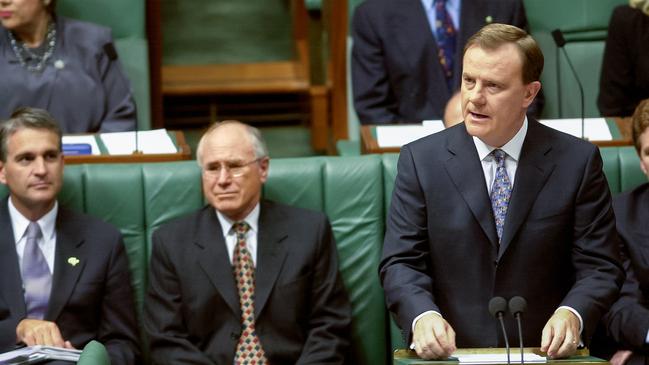
In an exclusive interview with Inquirer, Costello said the Albanese government had abandoned the long-run surplus strategy of both previous Coalition and Labor governments with two consequences: “The state will play a far larger role in our life and we’ve given away the goal of paying off debt from the surplus.”
Costello’s critique raises serious institutional issues for the Treasury and the Reserve Bank along with both sides of politics. The spectre he suggests is that after two fiscal crises – the global financial crisis of 2008-09 and the recent pandemic-induced downturn – the political class is exhausted before rising spending and deficits and has lost the resolution to control the nation’s budget.
“Coming out of coronavirus our situation is different from past crises,” Costello said. “Nobody seems to think now is the time to get the budget back to surplus. Government is a lot bigger than it was 15 years ago. Tax per capita is higher and spending per capita is about 40 per cent higher. That’s a good way to measure the reach of government. But if Australia wants to maintain its competitive position it cannot have unlimited tax rises.”
Costello said the 20-year-old policy of balancing the budget – achieving surplus over the cycle – had been abandoned by the Albanese government. While there was “erosion” of this medium-term principle under the Morrison government, the main event was its formal ditching as a fiscal goal in the first budget of Jim Chalmers.
“The surplus as an objective over the cycle is no longer in the current budget,” Costello said. “Debt has become permanent.” The upshot would be an expansion in the size and role of government in Australia’s national life.
Highlighting the break from the past, Costello said successive treasurers, despite the pressures, had stood by the principle of a return to surplus, citing Wayne Swan during the Rudd-Gillard era and Joe Hockey under the Abbott government. “It was bipartisan,” Costello said – but the policy he had first laid down as treasurer “is no longer our fiscal policy”.
Costello’s related theme was that the Liberal Party was compromised during the coronavirus period and would need to “rediscover its commitment to traditional values” of personal freedom, smaller government and lower taxes.
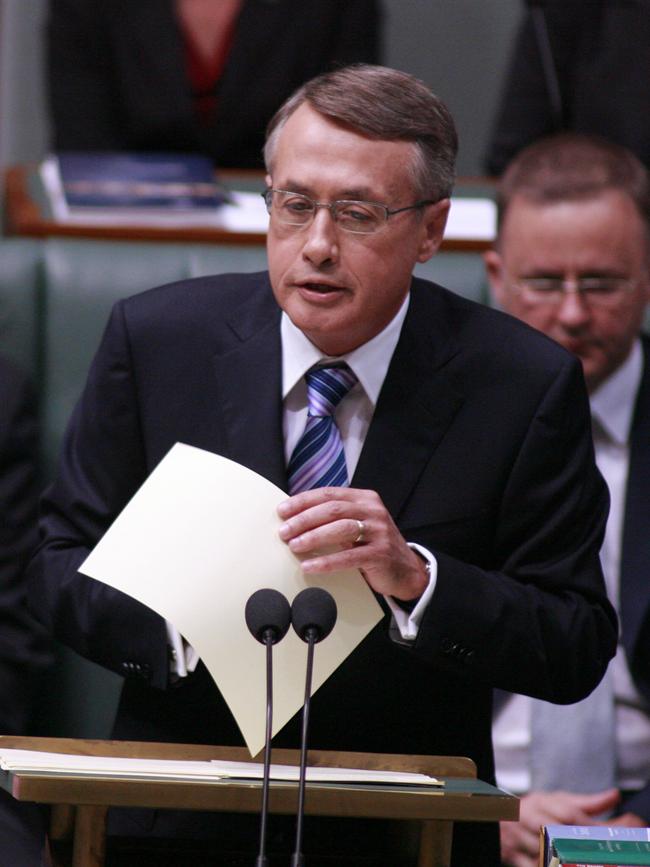
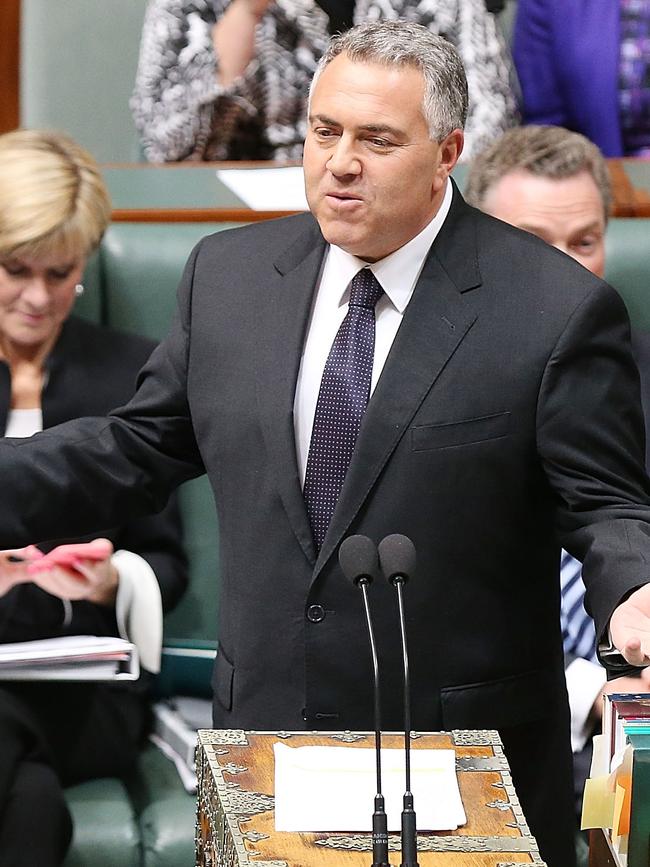
At the same time Costello said the Reserve Bank made multiple misjudgments during the pandemic with far-reaching consequences. He criticised the bank’s embrace of what it had called “unconventional monetary policy” during the pandemic downturn, his main lines of attack being its forward guidance on interest rates and its bond-buying program to help keep interest rates low. He said the bank deliberately resorted to “abnormal” monetary policy with forward guidance by governor Philip Lowe on the official rate remaining at 0.1 per cent until 2024 – guidance that was proven to be wrong yet was intended “to encourage people to borrow on the assumption that rates will not move – that was the whole point of it”.
As chairman of the Future Fund, Costello said he never believed the bank’s forward guidance on rates. “I didn’t believe it because the governor can’t tell you what interest rates are going to be in 2024,” Costello said. “He didn’t know. I didn’t act on it. But I’m a sophisticated reader. There might be young home buyers out there who believed him.
“Normal monetary policy says, here’s the rate and the rate in 2024 will be whatever is consistent with our inflation objective,” Costello said. “That’s normal monetary policy. But this was designed to be abnormal – we’re guiding you about the rate in 2024 and just in case you think we’re not serious we will go and buy bonds.”
Costello judged the bank’s bond-buying program as being unwise and unnecessary. He said the next saga was that the bank missed the return of inflationary pressures. “Inflation got away from them,” he said. “They realised they couldn’t hold the 0.1 per cent rate.”
The upshot from the bond-buying program is that the Reserve Bank now is reduced to negative equity with deputy governor Michele Bullock two months ago showing the bank with negative equity of $12.4bn in 2021-22.
“If any commercial bank did this, you’d wind up the bank,” Costello said. “Nicholas Moore would be on the run in Bolivia.” He made no judgment about Lowe’s future. But his criticism leaves only one conclusion – Labor should not reappoint Lowe next year.
“The bank has never done this before,” Costello said of its embrace of unconventional monetary policy. “They didn’t do it during the ’09 crisis. Personally, I don’t think they should have done this in 2020. It was unnecessary.”
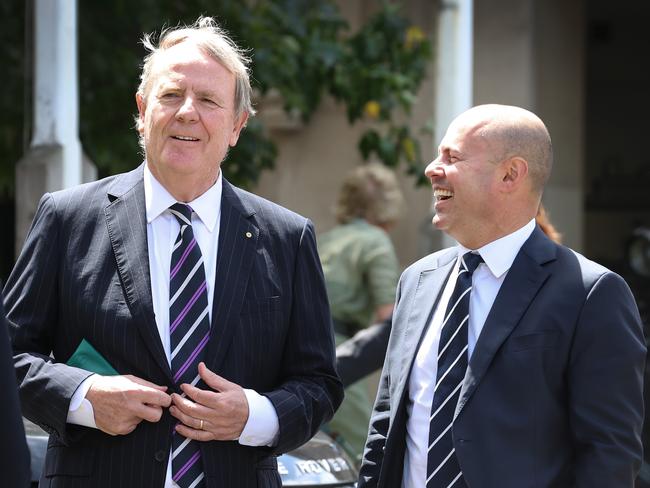
While not personally criticising former treasurer Josh Frydenberg, Costello said: “The government could have indicated its concerns to the bank. If those concerns were big enough, it could even have made them public.” He said the treasurer had regular meetings with the governor and “I would have expected robust conversations in those monthly meetings”.
Costello said the bank’s performance during the pandemic carried a major lesson: “independence is not infallibility”. One of his strong themes was the need for greater accountability and scrutiny of the bank: “Because the bank is independent, the scrutiny should be greater, not less.”
He said the Reserve Bank “to its credit did an assessment of the bond-buying program, they admitted errors but said, on balance, it was probably good”. He disputed that judgment.
In her recent speech Bullock defended the program since it reduced borrowing costs and supported jobs but said it should be used again only in “extreme circumstances”.
She conceded if the Reserve Bank had been a commercial entity then it “would not be a going concern”. But that scenario could not arise since the bank enjoyed a guarantee from the government and could create money. All up, the bank purchased $281bn of bonds during the pandemic-induced downturn. Costello said the message seemed to be “we wiped out our equity but don’t worry about that because we can print money”.
Costello attacked the related but separate notion of Modern Monetary Theory, branding it a “cult” since it became the popular backdrop as central banks around the world adopted what is known as quantitative easing – buying bonds to boost money supply and keep interest rates low.
Many central bankers including Lowe, along with many economists, criticised MMT but Costello said its influence on debate had been “beguiling and corrosive”. He focused on the widely lauded 2020 pro-MMT book The Deficit Myth by US economist Stephanie Kelton that argues where government is the monopoly issuer of currency then budget deficits should be promoted as a public good.
Costello singled out the influence exercised by ABC finance presenter Alan Kohler, a former commentator on The Australian and sustained advocate for MMT. Kohler argued that a government deficit “was just a transfer of money from government to the private sector” and in 2020 said one good thing about the pandemic was ending the notion that deficits were the result of “reckless overspending” and were “a burden on our children”.
On fiscal policy, Costello said: “The policy I laid down as treasurer was ‘we balance the budget over the course of the cycle’. That is, we are in deficit when things turn down and in surplus when things are turning up. That was the policy I had. It was the fiscal policy that Kevin Rudd and Wayne Swan had. It was the fiscal policy that Tony Abbott and Joe Hockey had. That is no longer the fiscal policy.
“The fiscal policy which we had for 20 years has been dropped. What does that mean? It means even though we are now at the top of the cycle – the terms of trade are higher than they have ever been in Australia’s history – we can give away any thought of taking the budget back to surplus and paying back debt. That’s the consequence.”
Costello said high commodity prices meant “these are the good times” and “it only gets worse after this”. Chalmers’ first budget showed the deficit growing over the decade to reach 1.9 per cent of GDP in 2032-33.
“If we’re running deficits at the peak of the economic cycle, where will we be when the cycle turns against us?” Costello asked.
His argument is similar to that of prominent economist Ross Garnaut at the Jobs and Skills Summit when Garnaut said: “We have to stop kidding ourselves about the budget … We have large deficits when our high terms of trade should be driving surpluses.”
Referring to Labor’s economic and fiscal strategy on page 75 of the Chalmers budget, Costello said not only was the fiscal framework gone, also gone was the former government’s cap on tax as a proportion of GDP. The absence of a specific medium-term fiscal rules has been criticised by commentators. Costello said once the surplus “is no longer an objective” then “debt becomes permanent”.
The former treasurer sketched the history. He said both fiscal and monetary policy had been deeply affected by the impact of the two downturns – the 2008-09 global financial crisis followed a decade later by the economic recession caused by the pandemic.
In the GFC, the Rudd government engaged in a budget stimulus with Rudd declaring he would not tolerate any repeat of the Depression cycle. Rudd and Swan, supported by Treasury, moved quickly to prevent an Australian recession, taking the budget heavily into deficit. But the aim was always to return to surplus. In Swan’s May 2012 budget speech he announced the return to surplus “on time, as promised” – there were many sceptics and they were proved right. Swan misjudged. Costello’s point, however, is that Labor sought to deliver the policy, the aim being “to achieve budget surpluses on average over the medium-term”.
The first Hockey budget projected a return to surplus in the medium term, a process derailed by the need for even more stimulus because of the pandemic. The point being, however, that Abbott and Hockey had a return to surplus timetable.
Asked what fiscal advice he gave Frydenberg when the stimulus was launched to counter the pandemic’s downturn, Costello said: “The important thing to remember is that we will be getting out of this. You will take the stimulus out, so as far as possible. It should be temporary stimulus. That was my advice.” But he said too much was spent by the Morrison government. “JobKeeper was right when targeted against companies that had falls in revenue but, in the end, it was paid to companies that had increases in revenues. That just defies logic.”
Asked what lessons the Liberal Party should draw, Costello said: “The thing for the Liberal Party now is: where does it go? It cannot possibly go down the path of Modern Monetary Theory. To its credit the Albanese government is not going down that path. I give Labor credit on that.
“I would say the lesson we have learnt from this bout of inflation is that deficits do matter. We are now tightening considerably. The hangover now is that interest rates have gone up, budgets have to be tightened. People are going to use this as a reason to increase taxes. That’s where we are.” He said the previous Liberal government espoused a tax to GDP cap. This was vital for Australia’s competitive alignment and, ultimately, its productivity prospects.
Asked about monetary policy, Costello said: “I think the Reserve Bank did QE because all the other central banks were doing it. We need a very careful assessment of what was done. The bank didn’t do QE in the ’09 crisis but decided to do it this time. People were feeling more relaxed. We’d come through the ’09 crisis but inflation hadn’t really taken off. When we came to the coronavirus crisis the view in central banks was let’s do it again.”
The most serious Australian analyst on QE in recent years has been former RBA deputy governor Stephen Grenville, who warned last year: “Allowing unconventional QE to become a routine policy tool would be a mistake.”
The real fear surrounding QE and MMT is that they risk high inflation. “Sitting here in 2020 it is obvious that it has contributed to inflation,” Costello said.
Renewing his attack on MMT, he said: “Who would incur the political unpopularity of cutting spending or increasing taxes and reforming your tax system if there is unlimited free money? My criticism of Modern Monetary Theory – and I’m not being wise after the event – is that it would led to inflation. This is what has happened.”
Costello said accountability of the RBA had to be strengthened. There were three lines of accountability. First, the board, but it was not operating as a “counterweight” to the governor. Second, the parliamentary committee, but that depended the quality of the MPs. And third, the role of the treasurer since the bank came within the treasurer’s portfolio.


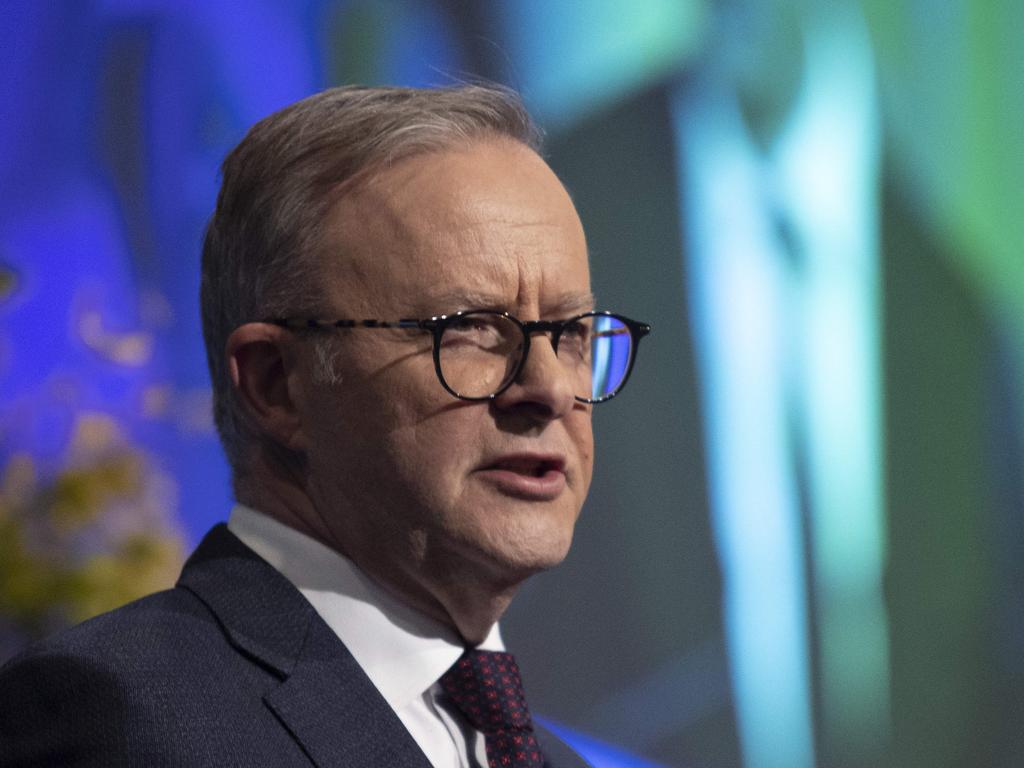
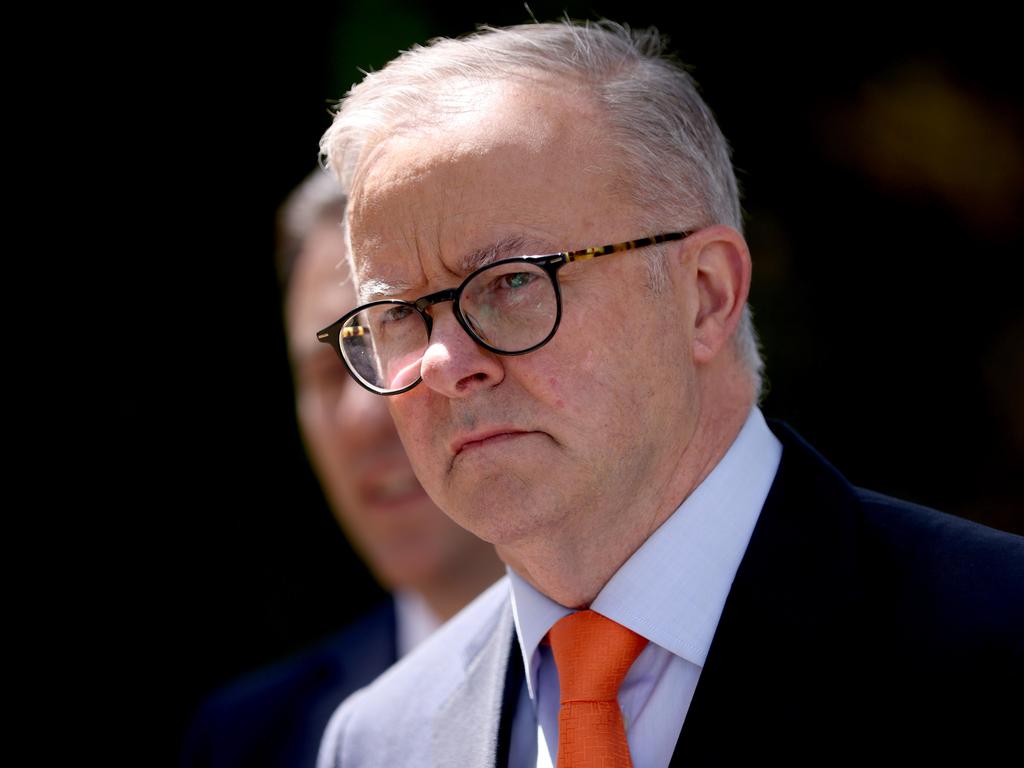


In an assault on Australia’s economic performance, former Liberal treasurer Peter Costello warns the nation confronts a hefty expansion in the reach of government, permanent high debt, surrender in the struggle for a budget surplus and a central bank beguiled into abnormal monetary policy.